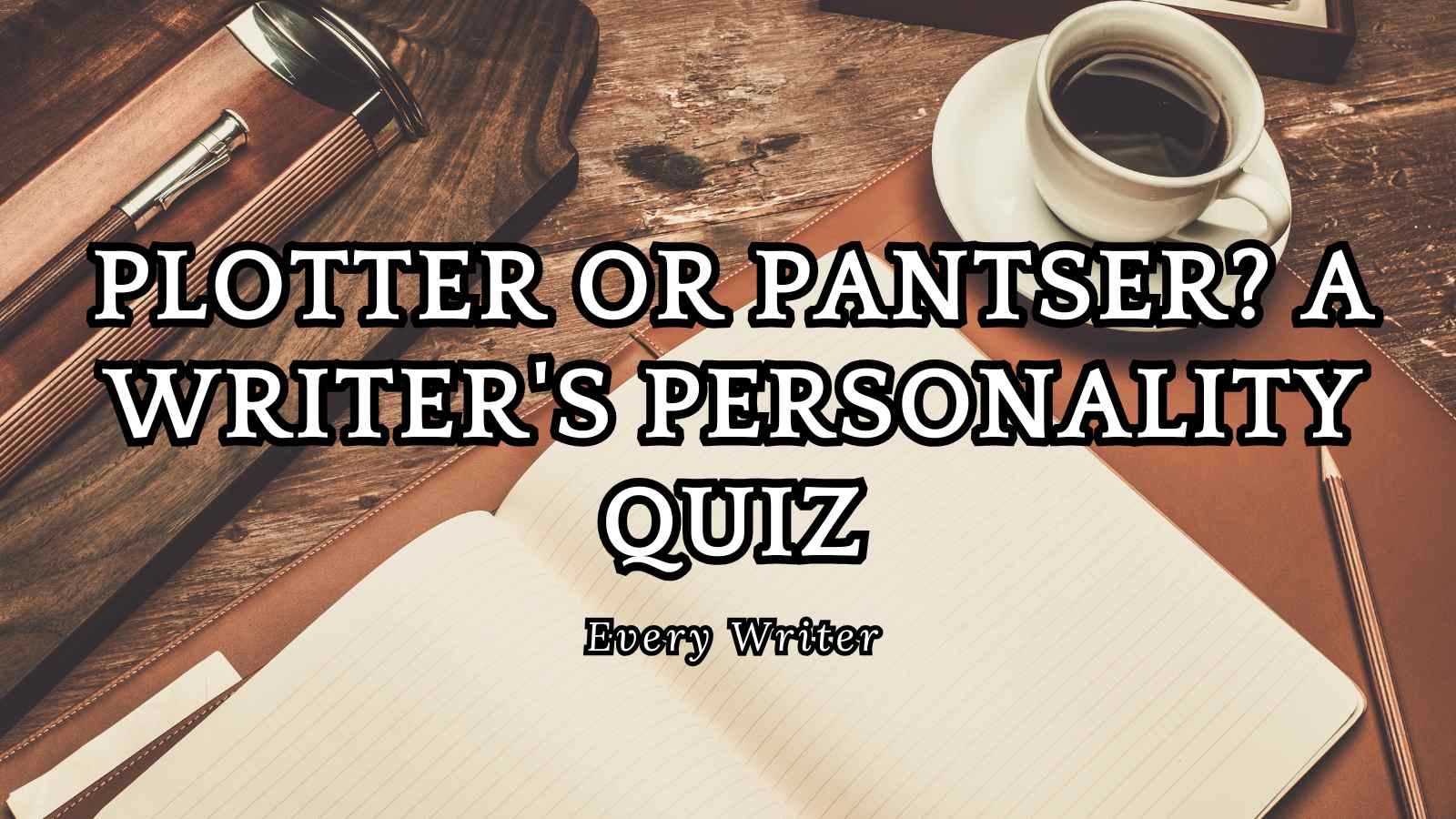Instructions
Answer each question with True or False based on your natural writing tendencies. Be honest about how you actually write, not how you think you should write. Points are calculated based on Plotter tendencies—some questions award points for “True” answers, while others award points for “False” answers. Each question is worth 2 points.
Scoring
0-35% (0-14 points): The Seat-of-Your-Pants Daredevil
Congratulations! You’re the literary equivalent of someone who goes grocery shopping while hungry and without a list. Your desk is probably decorated with sticky notes that say things like “Chapter 27: Something exciting happens?” Your characters routinely surprise you by making life choices you never approved, like getting married or committing felonies without your permission. When asked about your plot, you respond with “We’ll find out together!” Your browser history is full of searches like “Can someone survive falling off a cliff?” at 2 AM because your protagonist just decided to go mountain climbing in Chapter 12. Your revision process involves untangling plot spaghetti and wondering who introduced that mysterious character in Chapter 8 (spoiler: it was you).
40-60% (16-24 points): The “I Have Notes” Compromiser
Well, aren’t you diplomatic! You’re like someone who brings both a map AND a sense of adventure on a road trip. You have a vague idea that your novel should probably end without everyone dead (unless that’s your thing), but you’re open to negotiation. Your outline looks suspiciously like cocktail napkin sketches, and your character sheets contain helpful notes like “Bob – the funny one?” You own planning tools but use them primarily as very expensive paperweights. When your writing group asks where the story is going, you confidently say, “I have ideas,” which is technically not a lie since having exactly 1.5 ideas still counts as plural.
65-100% (26-40 points): The Spreadsheet Enthusiast
Oh my! You’ve never met a planning tool you didn’t immediately want to marry. Your novel existed as a 15-page outline, character genealogy, and color-coded scene cards before you wrote “Chapter One.” You have strong opinions about project management software and have definitely created a Gantt chart for your writing schedule. Your friends worry about you when they see the wall of your office covered in timeline Post-its and red string that looks suspiciously like evidence from a crime investigation. You’ve created backstories for characters who appear in one scene buying coffee. When you finally write, it’s like following a very detailed recipe for a soufflé – precise, methodical, and with exactly 37 checkboxes to tick off. Your browser history is full of searches like “best Excel templates for tracking fictional political systems.”
Understanding Your Results
Neither approach is inherently better—successful authors can be found in both camps and everywhere in between. What matters is finding the process that works best for you, which may even vary between projects.
Benefits of Plotting:
- Often results in more structured, cohesive first drafts
- May lead to fewer major revisions
- Can help prevent writer’s block related to “what happens next”
- Particularly useful for complex plots or series
Benefits of Pantsing:
- Allows for spontaneity and surprising creative directions
- Characters may develop more organically
- Can feel more creatively freeing and less restrictive
- Often preferred for character-driven stories
Tips for Plotters:
- Remember to leave room for inspiration during the writing process
- Be willing to deviate from your plan if a better idea emerges
- Don’t get so caught up in planning that you never start writing
- Consider planning in layers rather than trying to figure out everything at once
Tips for Pantsers:
- Consider creating minimal sign posts to guide your writing
- Be prepared for potentially more extensive revision work
- Keep notes on characters and plot developments as you write
- Don’t be afraid to stop and plan when you hit roadblocks
Remember that many writers evolve in their approach over time, and you can borrow techniques from both styles depending on the needs of your current project. The goal is to find a process that makes writing both enjoyable and productive for you.
- How to Build Unstoppable Story Tension: 5 Proven Techniques (+ Free Worksheet) - July 3, 2025
- The Kindness and Quiet Desire of Strawberries - July 2, 2025
- Science Fiction Quiz #1 - May 21, 2025
